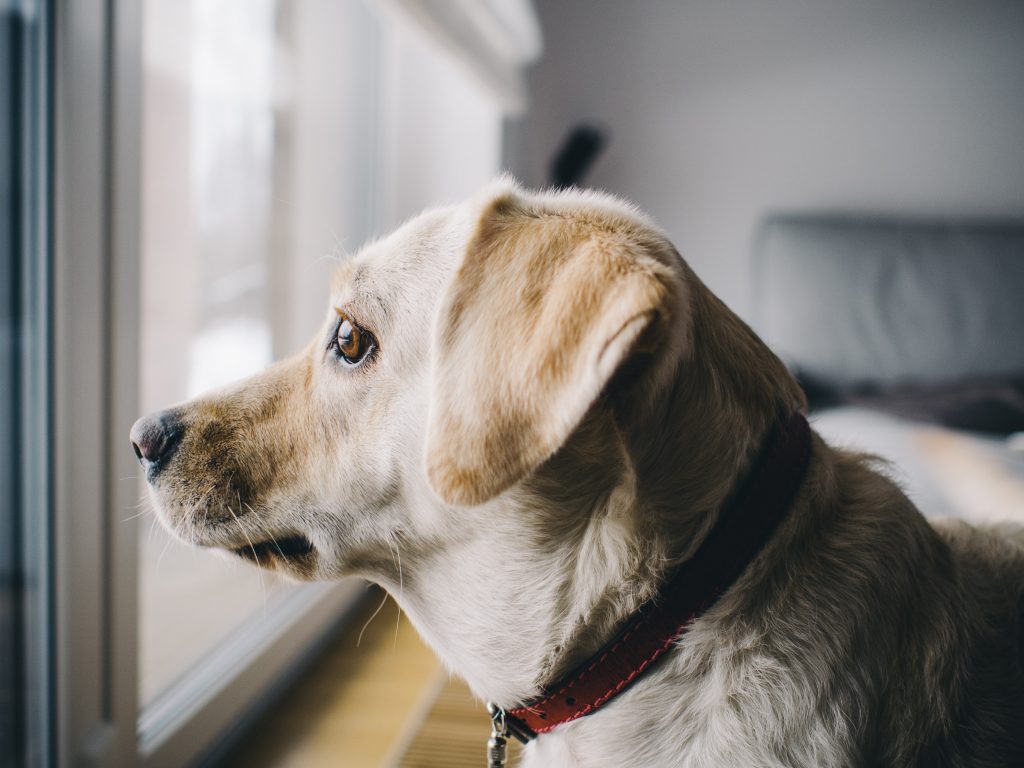August 2, 2018
The Anxious Dog
 One of the most difficult issues for owners—and shelters—to manage in dogs is separation anxiety. Dogs with separation anxiety become extremely distressed and destructive when left alone, or more specifically, when separated from their owners or people they’re attached to. Besides the obvious distress of the dog suffering from it, the effect on owners can be extreme. Dogs with the condition show behaviours such as urination and defecation in the house, barking and howling, chewing, digging and destruction, and escaping. These extreme canine behaviours will often result in accidents, self-injury, household destruction and excessive noise complaints from neighbours.
One of the most difficult issues for owners—and shelters—to manage in dogs is separation anxiety. Dogs with separation anxiety become extremely distressed and destructive when left alone, or more specifically, when separated from their owners or people they’re attached to. Besides the obvious distress of the dog suffering from it, the effect on owners can be extreme. Dogs with the condition show behaviours such as urination and defecation in the house, barking and howling, chewing, digging and destruction, and escaping. These extreme canine behaviours will often result in accidents, self-injury, household destruction and excessive noise complaints from neighbours.
Last year, dozens of dogs were surrendered to the OHS by their owners, either specifically because of separation anxiety-like behaviour or exhibited the symptoms without specifically being surrendered for that reason. On top of those, out of the 72 dogs returned to the OHS post-adoption by their adopters, 20% were returned for separation anxiety-like behaviour. Anecdotally, we hear that separation anxiety is sometimes the root cause of dogs being left in hot cars as the dogs cannot be left at home alone without triggering the anxiety behaviours.
The full explanation as to why some dogs develop separation anxiety is still unknown. Most situations that have been associated with the development of separation anxiety have one thing in common: change—changes in such things as guardian or family, schedule, residence or in household membership. Some dogs are believed to be more predisposed to separation anxiety and the change in circumstances may bring it out.
Currently, the OHS provides crate training, enrichment, foster or office breaks, “thunder shirts” and, in some cases, medication to address anxiety for the dogs in our care.
In the five-year OHS strategic plan enhancing our ability to intervene in serious canine behaviour issues is a priority focus, and separation anxiety has been identified as among the most important. We see the need in the community and our canine services team is developing a plan to provide more support for dogs and owners dealing with separation anxiety in the home.
In March, the OHS will be hosting a one-day workshop for the public on the topic of Canine Separation Anxiety by two renowned experts: Malena DeMartini and Casey McGee.
We think that advances in research and technology coupled with new ways of thinking will make what once seemed nearly impossible—the successful resolution of even severe separation anxiety cases—possible here at the OHS and in our community.
Bruce Roney
President and CEO
